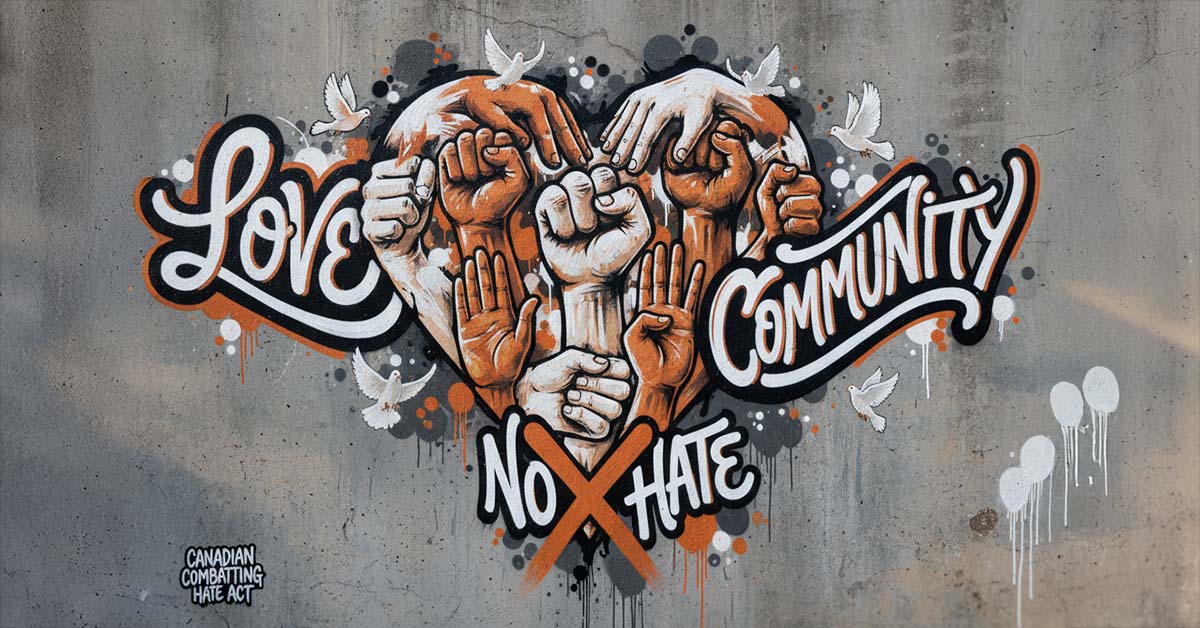Need for Narrower, Rights-Respecting Language in the Hate Symbol Portion
To the Honourable Sean Fraser, Justice Minister
Dear Minister Fraser,
I am writing to you as a Canadian citizen, registered Liberal, a volunteer for the Liberal Party in the most recent federal election, and a supporter of the government’s efforts to improve the safety and security of all Canadians.
I appreciate the intent behind the Combating Hate Act (CHA) and the government’s leadership in seeking to protect Canadians from intimidation, fear, and violence, especially those from communities that have historically been targeted. The freedom to go about my business without fear is something I enjoy and wish for all people within our borders.
The display of a hate symbol can be harassing and intimidating to certain people and groups, and make them feel unsafe and keep them from gathering, worshipping, working, or moving freely through an area. In response to threats in graffiti, people in my friend’s Jewish community dressed up as baseball players last Halloween, so it could be socially acceptable to hold bats for self-defense as they took their children trick-or-treating.
As proposed, the hate symbol portion of the CHA could stifle expression that may be abhorrent but does not impinge on other people’s rights and freedoms. As a Liberal (and a liberal, in the classical sense), I value our party’s tradition of safeguarding individual liberty and freedom of expression. The proposed law also grants the power and responsibility of defining the list of hate symbols to the government, when it should be with the courts and the culture at large.
There is the opportunity to craft the law so that it protects people from being intimidated with the display of hate symbols, maintains freedom of expression, and does not grant the government more powers or responsibilities than required.
I respectfully recommend two key revisions:
Context-Based Limitations: The offence should apply only when the display of a symbol has intentionally caused members of a targeted group to feel unsafe gathering, worshipping, conducting business, or moving freely. The display of the hate symbol must interrupt someone’s behavior or stopped their plan for future behaviour to be criminal. This keeps the law reserved for intentional intimidation, rather than being weaponized against lesser expressions, such as counter-protests or nuisance displays.
Avoiding Fixed Government Lists: While I trust you and the current government to maintain a reasonable list of prohibited hate symbols, I am deeply concerned about the power it grants to the government. Future governments — which may not have good intentions — could add symbols for political reasons, criminalizing legitimate political expression. An improved approach would be a standard that applies to any symbol that is both intimidating and generally recognized as a symbol of hatred or terror, as determined by courts on a case-by-case basis. A two-part test could determine if something is a hate symbol: a) the victim(s) felt intimidated by the symbol, and b) a reasonable person outside of the group would agree that it is a well-known hate symbol. This could be assessed by the court through victim and expert testimony, and common law would keep symbols from needing to be relitigated. The second part of the test keeps people who are merely offended by a symbol do not get to veto its display. It also future-proofs the law.
These refinements would better align the bill with Canada’s Charter values, ensure it passes constitutional scrutiny, and safeguard against misuse by future governments who might exploit such a list to suppress dissent.
I am proud to support a government that takes hate seriously while also respecting the freedoms that define Canada as a liberal democracy. I hope these suggestions can help make the Combatting Hate Act a model for protecting Canadians from harm without compromising the liberties we all cherish.
Thank you for your leadership and for considering these recommendations.
Respectfully,
Colin Finkle

